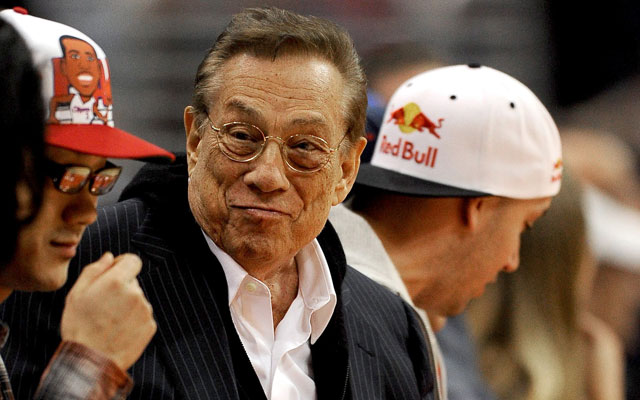
Sterling will not pay great, may file a claim against
Outlawed L.a Clippers owner Donald Sterling isn't really going away without a battle.
Sterling's attorney has informed the NBA that Sterling will not be paying the $2.5 million great imposed against him last month by commissioner Adam Silver.
That great was due this week, according to a source with know-how of the scenario.
In a letter sent on Sterling's behalf, antitrust litigator Maximum Blecher also threatened to take legal action against the organization if Sterling is not paid for due process.
Baseding on a report on DI.com, the letter was sent Wednesday and asserts that "no punishment is called for" for Sterling, who was prohibited permanently and fined $2.5 million for racist statements he made that were published by TMZ. The letter claims Sterling has not breached the NBA constitution which his "due process civil liberties" were gone against by the organization's four-day examination.
Pay per Head Network is the sports bookmaking online. Start your free 2 week trial now and experience the best bookmaking software online!
"I'm an excellent participant who slipped up," Sterling shared earlier this week. "Am I entitled to one error, am I after 35 years? I suggest, I adore my league, I enjoy my partners. Am I entitled to one blunder? It's an awful blunder, and I'll never ever do it once more.".
Sterling's capacity to remain proprietor of the Clippers relaxes in the hands of the NBA's other 29 proprietors, that are expected to vote on the matter. A 75 percent bulk is needed to oust Sterling. In the interim, the league has made Prick Parsons the Chief Executive Officer of the franchise business.
According to the NBA laws, Sterling's ownership also could be cancelled if he does not pay the fine within 30 days of created notification from the commissioner that he is in default on the repayment.
The NBA's constitution, which Sterling authorized as controlling proprietor of the Clippers, provides its board of guvs broad latitude in league choices.
The secret to the NBA's authority, attorneys say, is Article THIRTEEN(d) of the league's constitution. That part mentions that, whether Sterling intended to or otherwise, an owner can not "fall short or refuse to accomplish" contractual commitments to the NBA "in such a way to affect the Organization or its participants negatively.".
Sterling's remarks produced hazards of a player boycott, led enrollers to withdraw support and made a racially billed photo issue in the midst of the NBA playoffs that also Head of state Barack Obama mentioned upon.
As long as the NBA meticulously follows its own constitution and guidelines relating to the Clippers sale, it will be tough for Sterling to locate a legal concept that would certainly stand in court, claimed Daniel Lazaroff, supervisor of the Sports Law Institute at Loyola Law College in Los Angeles.
"This is not an antitrust issue. This is not a First Amendment issue," Lazaroff claimed. "It's a problem restricted to the interpretation of the NBA constitution and bylaws, and whether those terms are complied with.".
If he is displaced, Sterling still stands to reap a substantial financial windfall in a Clippers sale. He bought the group for $12.5 million in 1981, and Forbes journal just recently placed its 2014 value at $575 million, or No. 13 in the NBA. There would be a massive capital gains tax bill in any type of sale.
The Clippers' postseason run finished Thursday evening when they shed 104-98 to Kevin Durant and the Oklahoma City Thunder in Game 6 of the Western Meeting semifinals.





